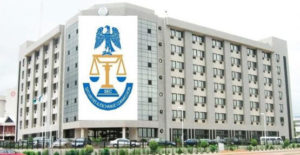Introduction To Securitization:
Securitization is a financial practice that has received a lot of attention in recent years. It entails converting illiquid assets into tradable securities, allowing businesses to access additional funding sources and control risks. Securitization has emerged as a key instrument in Nigeria for freeing liquidity in numerous areas of the economy. This blog article seeks to offer a full review of securitization in Nigeria, including its definition, advantages, regulatory structure, and future possibilities.
Understanding Securitization:
The process of combining financial assets, such as mortgages, loans, or receivables, and transforming them into marketable securities is known as securitization. Securitized assets are often backed by a cash flow or underlying collateral, providing investors with a means of repayment. Securitization improves liquidity and risk diversification by converting illiquid assets into marketable securities.
Benefits of Securitization:
Securitization provides numerous benefits to both issuers and investors in Nigeria, including:
a. Increased Liquidity: Securitization allows financial institutions to unlock the value of illiquid assets, allowing them to access new funding sources to support lending and other business operations.
b. Risk Mitigation: By moving the underlying assets to investors, securitization helps to mitigate credit risk and reduce the concentration of risk on financial institutions’ balance sheets.
c. cheaper Cost of Finance: Securitization allows issuers to get finance at a cheaper cost than traditional financing techniques since the risk is distributed over a larger investor base.
d. Portfolio Diversification: By gaining exposure to a range of asset types, such as mortgages, auto loans, or credit card receivables, investors may diversify their portfolios.
Regulatory Framework in Nigeria:
The Securities and Exchange Commission (SEC) and the Central Bank of Nigeria (CBN) principally oversee the regulatory environment for securitization in Nigeria. The SEC supervises securitized asset public offerings and establishes disclosure requirements for issuers. The CBN, on the other hand, concentrates on prudential rules and risk management recommendations for financial institutions involved in securitization.
The regulatory framework in Nigeria for securitization is primarily governed by the Securities and Exchange Commission (SEC) and the Central Bank of Nigeria (CBN). These regulatory bodies establish guidelines, rules, and requirements to ensure transparency, investor protection, and overall stability in the securitization market.
1. Securities and Exchange Commission (SEC):
The SEC is the primary regulatory body responsible for overseeing the Nigerian capital market, including securitization activities. It regulates public offerings of securitized assets and sets disclosure requirements for issuers. The SEC’s role is to ensure that investors are provided with accurate and adequate information to make informed investment decisions.
For Example: When a company intends to issue securitized assets to the public, such as Mortgage-Backed Securities (MBS) or Asset-Backed Securities (ABS), it is required to comply with the registration and disclosure requirements specified by the SEC. This includes submitting detailed prospectuses or offering memoranda that provide comprehensive information about the securitized assets, their underlying collateral, cash flows, risk factors, and any other relevant details.
2. Central Bank of Nigeria (CBN):
The CBN is Nigeria’s central banking authority, and it is vital in regulating financial firms that engage in securitization operations. It focuses on prudential rules, risk management, and comprehensive oversight to ensure the financial system’s stability.
For example, the CBN creates rules and regulations for financial institutions engaging in securitization on risk management, capital sufficiency, and accounting requirements. For example, to guarantee proper risk management techniques and capital buffers, the CBN may impose precise risk weightings or capital requirements for securitized assets held by banks or other financial institutions.
3. Corporate Affairs Commission (CAC):
Although it is not a regulatory authority for securitization, the Corporate Affairs Commission is in charge of company registration and formation in Nigeria. Companies that plan to engage in securitization operations must comply with the CAC’s regulations, such as appropriate registration and submission of required paperwork.
For example, a Special Purpose Vehicle (SPV) formed for the purpose of securitization, such as the acquisition and issue of securitized assets, would need to be registered with the CAC. The SPV must adhere to the legal and regulatory framework that applies to corporate entities, including adequate corporate governance processes and satisfying reporting duties.
Types of Securitized Assets in Nigeria:
The most popular categories of assets securitized in Nigeria are:
a. Mortgage-Backed Securities (MBS): These are securities that are backed by a pool of mortgage loans, allowing issuers to monetize mortgage portfolios and provide extra liquidity for housing financing.
b. Asset-Backed Securities (ABS): ABS are securities that are backed by assets such as auto loans, consumer loans, or receivables. They allow issuers to transform non-tradable assets into tradable securities.
Infrastructure bonds are securitized products that are used to fund infrastructure projects. They allow investors to participate in the development of the country’s infrastructure while getting regular revenue flows.
Challenges and Future Prospects:
- While securitization presents significant opportunities for Nigeria’s financial markets, there are challenges that need to be addressed:
a. Lack of Awareness: Many market participants, including potential issuers and investors, have limited knowledge and understanding of securitization. Educating stakeholders and promoting awareness is crucial for its widespread adoption.
b. Legal and Regulatory Framework: Although Nigeria has made significant progress in developing a regulatory framework for securitization, further refinement, and clarity are required to encourage market growth.
c. Investor Appetite: Developing a robust investor base for securitized assets is vital for the success of the market. Creating investor confidence and providing adequate risk information is essential in attracting a diverse pool of investors.
Looking ahead, the future prospects for securitization in Nigeria appear promising. With continued regulatory support, increased awareness, and investor participation, securitization can play a pivotal role in unlocking liquidity, promoting economic growth, and facilitating infrastructure development.
Use Case: Implementation of Securitization in Nigeria
Mortgage-Backed Securities (MBS)
The housing finance sector in Nigeria has been a focus area for securitization, particularly through the issuance of Mortgage-Backed Securities (MBS). MBS involves pooling mortgage loans and transforming them into tradable securities, providing issuers with a means to unlock liquidity and expand lending activities in the housing market. Here’s an example of how securitization has been implemented in Nigeria’s housing finance sector:
- Pooling of Mortgage Loans: A financial institution, such as a mortgage bank or housing finance company, originates a large number of mortgage loans from individual borrowers. These loans represent a pool of assets with underlying cash flows from borrowers’ mortgage payments.
- Formation of a Special Purpose Vehicle (SPV): To facilitate securitization, the financial institution establishes an SPV, which is a separate legal entity. The SPV acquires the mortgage loans from the originator and issues securities backed by these loans.
- Structuring the Mortgage-Backed Securities: The SPV structures the MBS, dividing them into different tranches or classes with varying risk and return profiles. This enables investors to choose securities that align with their investment preferences.
- Issuance and Sale of MBS: The SPV offers the MBS to investors through a public offering or private placement. These securities are typically rated by credit rating agencies to provide an assessment of their risk profiles.
- Cash Flows and Repayment: As borrowers make their mortgage payments, the cash flows are collected by the SPV. The SPV then distributes these cash flows to the investors in the MBS based on the structure of the securities.
- Enhanced Liquidity and Risk Management: Through securitization, the financial institution gains access to additional funding by selling the MBS to investors. This increased liquidity allows the institution to originate more mortgage loans, promoting housing finance and homeownership in Nigeria. Additionally, the transfer of mortgage credit risk to investors helps in managing the institution’s overall risk exposure.
This implementation example demonstrates how securitization, specifically Mortgage-Backed Securities, can play a significant role in expanding the availability of housing finance in Nigeria. By converting mortgage loans into tradable securities, securitization enhances liquidity, reduces risk concentration, and attracts a broader range of investors to participate in the housing finance market. It is essential to note that the example offered is only one specific use case of securitization in Nigeria and that securitization may be applied to a variety of asset classes and industries other than housing financing. Securitization’s adaptability allows it to be applied in a variety of industries, including infrastructure finance, consumer loans, and even government receivables, to solve unique funding needs and boost economic growth in Nigeria.
Growth of Securitization in Nigeria
Securitization has grown in popularity in Nigeria in recent years, as it has become recognized as a potent financial tool for releasing cash, controlling risk, and fostering economic development. Several reasons have aided in its expansion:
- Regulatory Support and Framework Development: Nigeria has made significant progress in developing a regulatory framework for securitization. The Securities and Exchange Commission (SEC) and the Central Bank of Nigeria (CBN) have played crucial roles in establishing guidelines, rules, and disclosure requirements. The presence of a clear regulatory framework has provided confidence to market participants and facilitated the growth of securitization activities.
- Regulatory Support and Framework Development: Nigeria has made significant progress in developing a regulatory framework for securitization. The Securities and Exchange Commission (SEC) and the Central Bank of Nigeria (CBN) have played crucial roles in establishing guidelines, rules, and disclosure requirements. The presence of a clear regulatory framework has provided confidence to market participants and facilitated the growth of securitization activities.
- Diverse Asset Classes: Securitization in Nigeria has expanded beyond traditional mortgage-backed securities (MBS) to include a diverse range of asset classes. This diversification allows issuers to securitize various assets such as consumer loans, auto loans, infrastructure bonds, and government receivables. The availability of different asset classes attracts a wider investor base and promotes market growth.
- Infrastructure Development: The need for infrastructure financing in Nigeria has been a significant driver of securitization growth. Infrastructure bonds, which are securitized instruments used to finance infrastructure projects, have gained traction. These bonds provide investors with an opportunity to invest in the country’s infrastructure development while receiving predictable cash flows. Securitization has emerged as a means to mobilize funds and address the infrastructure deficit in Nigeria.
- Investor Confidence and Appetite: As the securitization market in Nigeria matures, investor confidence has increased. Institutional investors, pension funds, and asset management companies are becoming more comfortable with securitized products and recognizing their potential benefits. The diversification, risk mitigation, and potential for attractive returns offered by securitization have attracted investors seeking alternative investment opportunities.
- Market Innovation and Collaboration: The growth of securitization in Nigeria has been facilitated by market innovation and collaboration among industry stakeholders. Financial institutions, legal firms, rating agencies, and other market participants have worked together to develop new securitization structures, improve risk assessment methodologies, and enhance market infrastructure. This collaborative approach has fostered a favorable environment for securitization growth.
While the growth of securitization in Nigeria is encouraging, there are still challenges to overcome, such as the need for continued regulatory refinement, market awareness, and investor education. However, the increasing adoption of securitization across various sectors and the government’s commitment to financial market development suggest a positive trajectory for securitization in Nigeria, supporting economic growth and capital market development in the years to come.
Conclusion of Securitization in Nigeria
In Nigeria, securitization is an appealing approach to increasing liquidity, controlling risk, and fostering economic growth. Securitization offers issuers alternative funding sources while providing investors with varied investment options by transforming illiquid assets into marketable securities. Securitization has the ability to significantly contribute to Nigeria’s financial environment, supporting numerous industries and promoting economic development, as the regulatory framework evolves and market knowledge improves.


